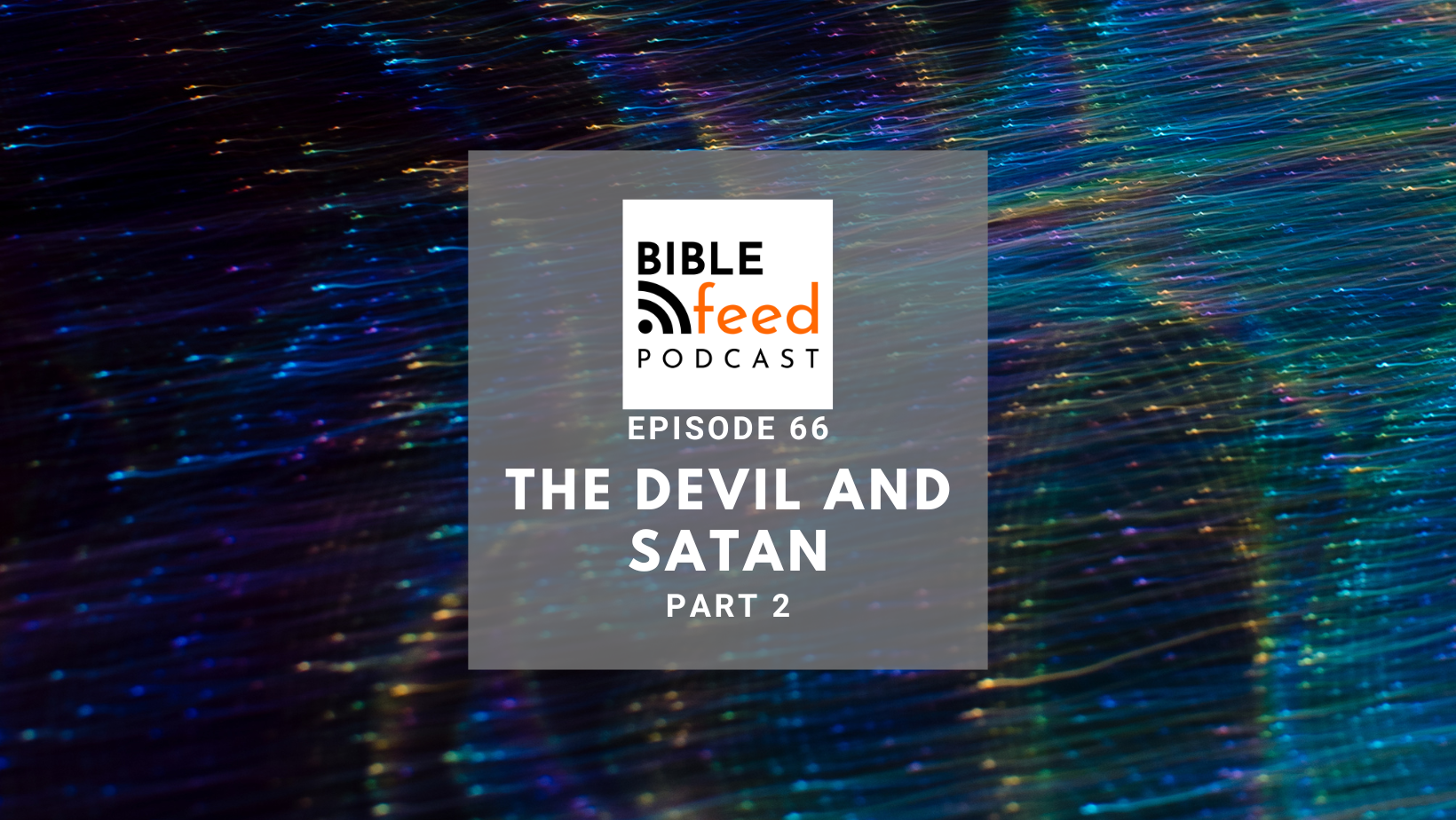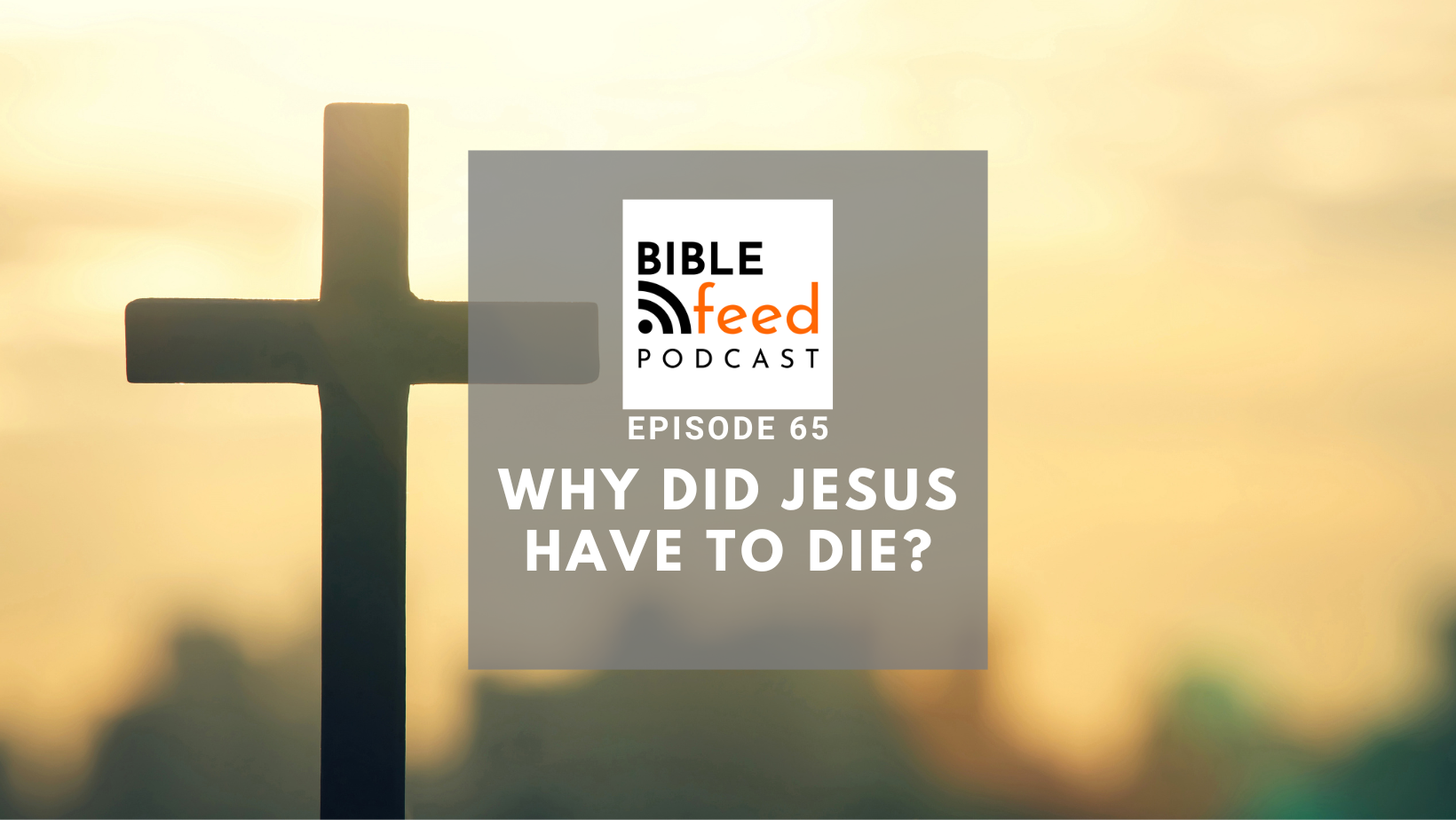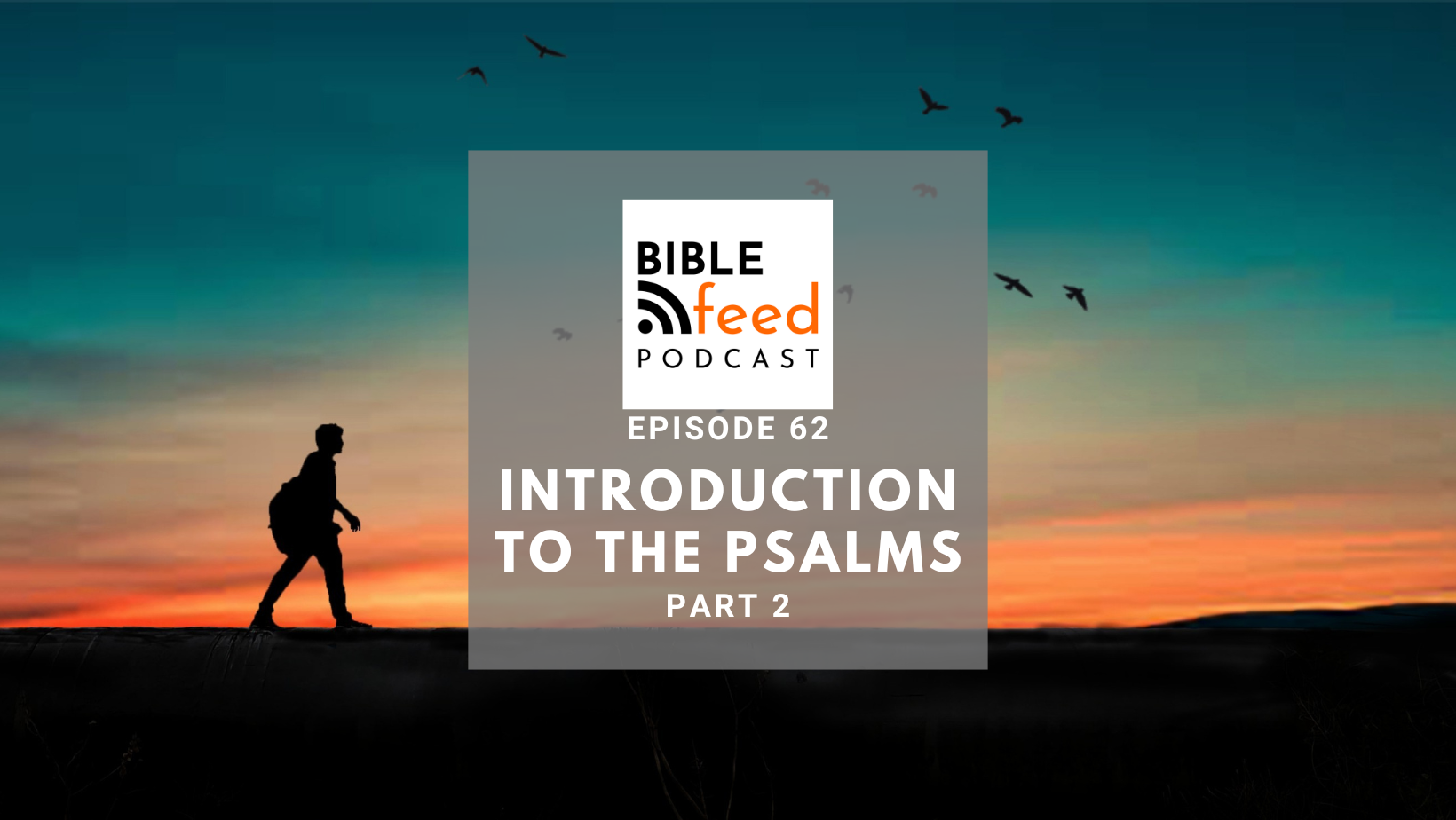We continue their exploration of how these 'characters' appear in the Bible. In part 1 we reached a preliminary conclusion that they are used as terms to personify our inherent tendency to want to go our own way rather than God's way. We now look at many more of the relevant biblical passages to get to know the devil and satan better.
Dan welcomes guest, John Launchbury, to discuss the vital question: why did Jesus have to die? They explore the meaning of the word atonement and consider the pros and cons of some of the main atonement theories. As they explore the key scriptural passages involved they find that the impact of the death of Jesus can be just as profound today as it was in the 1st century - and it's all about changing us rather than changing God!
In the dead of night, in the middle of the sea of Galilee under a ferocious storm, Jesus appears walking on the waves towards his disciples. He calms the sea and the boat is immediately at land and safety. It's no wonder that the disciples were amazed at this. What did this mean? If Jesus could control creation by walking on the raging sea, does that make him divine? Does walking on water show that Jesus is God?
Continuing the conversation from Part 1, Jordan and Dan find that some Psalms express doubts and uncertainties and deeply question what God is doing. But by remembering what God has done in the past the Psalmist is led back to peace of mind and trust in God, ending with a call for "everything that has breath to praise the LORD"!
Christmas is a time of joy and festivity, but the joy sometimes fades away much quicker than we would like. By turning attention directly to the birth of Christ, can we recapture something of a more permanent joy and rejoicing to help us through life with more optimism and hope?
How can Jesus uniquely be called the Son of God? Does calling him the Son of God make him Deity in any sense? What is Jesus claiming when he says he is the Son of God? All these questions and more are considered in this episode.
Leviticus may not be the most appealing read, after all, what does how long you remain unclean if you touch a dead body, have to do with a Christian today? But by scratching the surface we find that the careful structure of this book points to something, or rather someone, who is so much greater than the law.
How should we read the Old Testament in the light of Jesus? Do we even need to pay it any attention now that Jesus has come? We consider what it means for Jesus to fulfil the Old Testament and find that, when Jesus reads and applies the different parts of the Hebrew Bible, he shows us how to bring it to life in our lives as Christians today.
What does it mean for something to be the inspired word of God? Is it possible to explain how that happens, and if we can't, what certainty can we have about divine authority behind the text of the Bible? Considering these questions leads us to realise how important it is to treat the text with respect and be responsible and humble in how we draw out our interpretations of God's word.
In past centuries, going to church was a deeply embedded part of how western society worked. But today, with so much emphasis on personal faith and opportunity to do community activities outside church, is there any point in being part of a religious group and meeting with people? We discover three key reasons: Support, Diversity and Magnifying.






